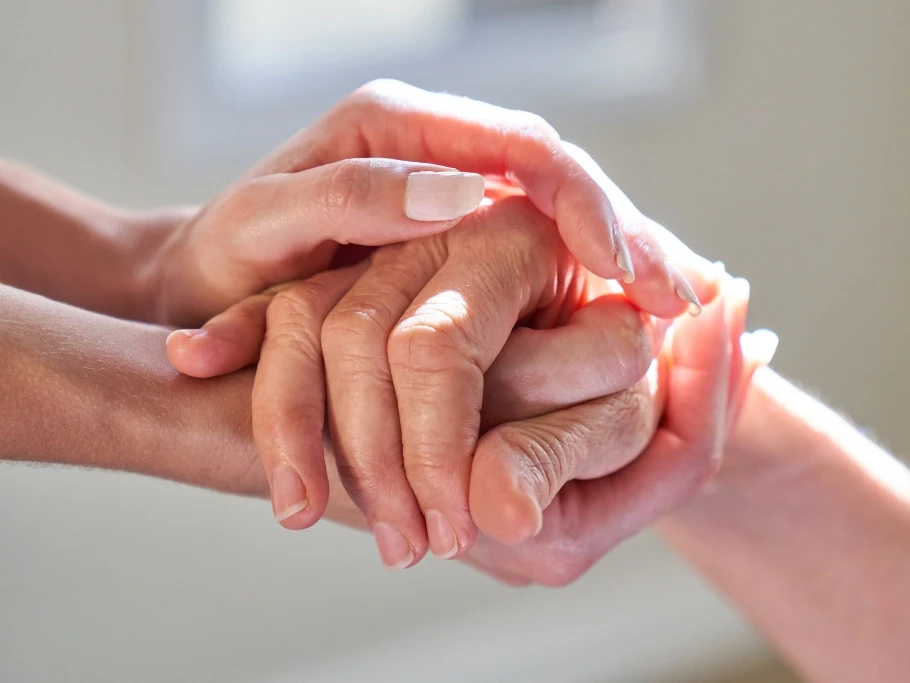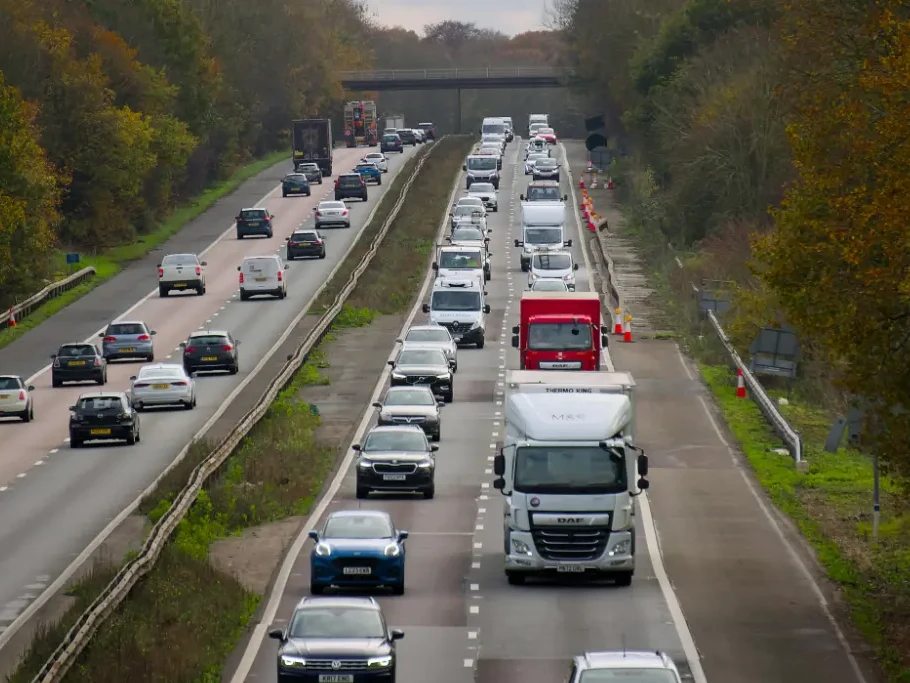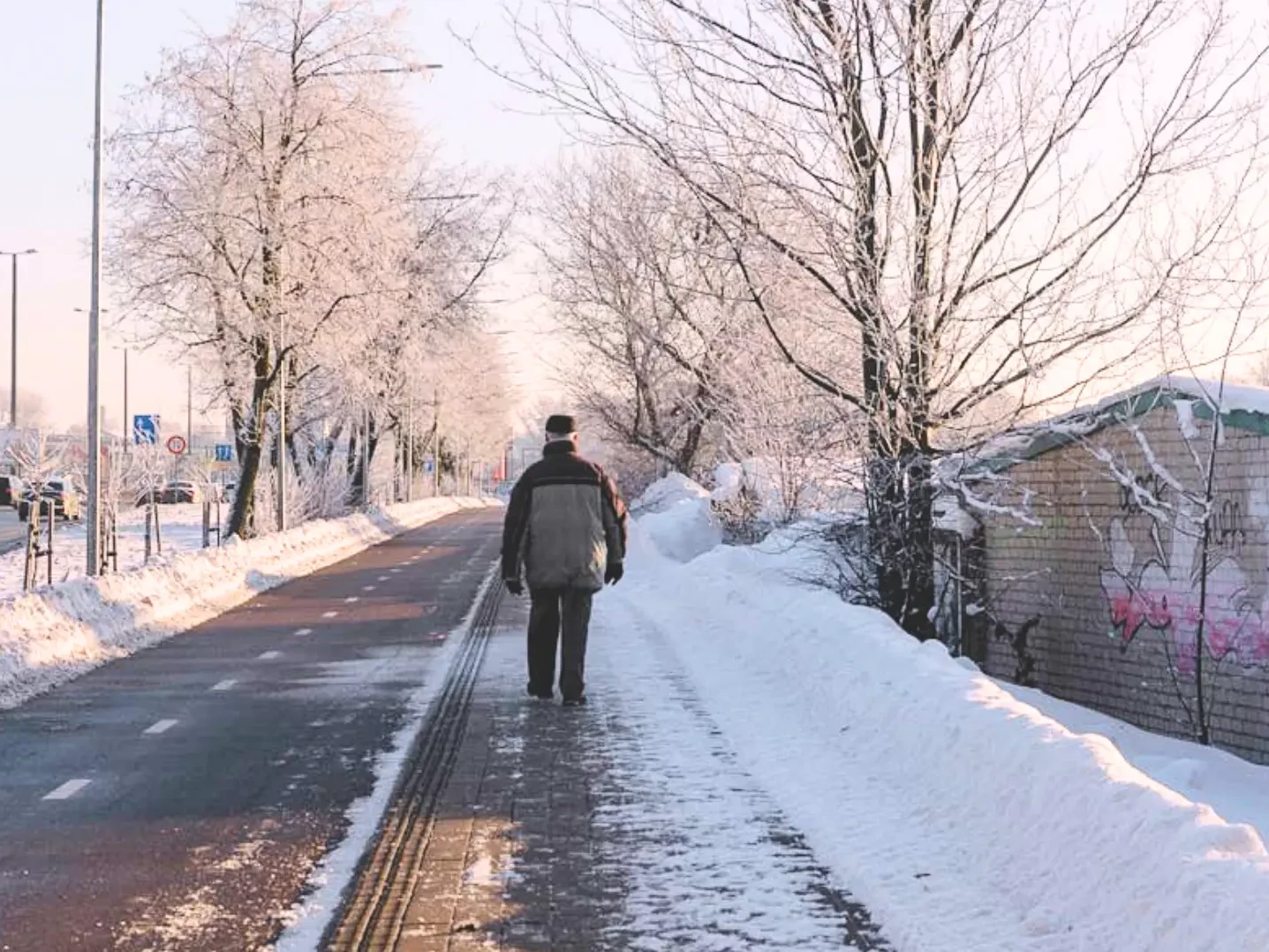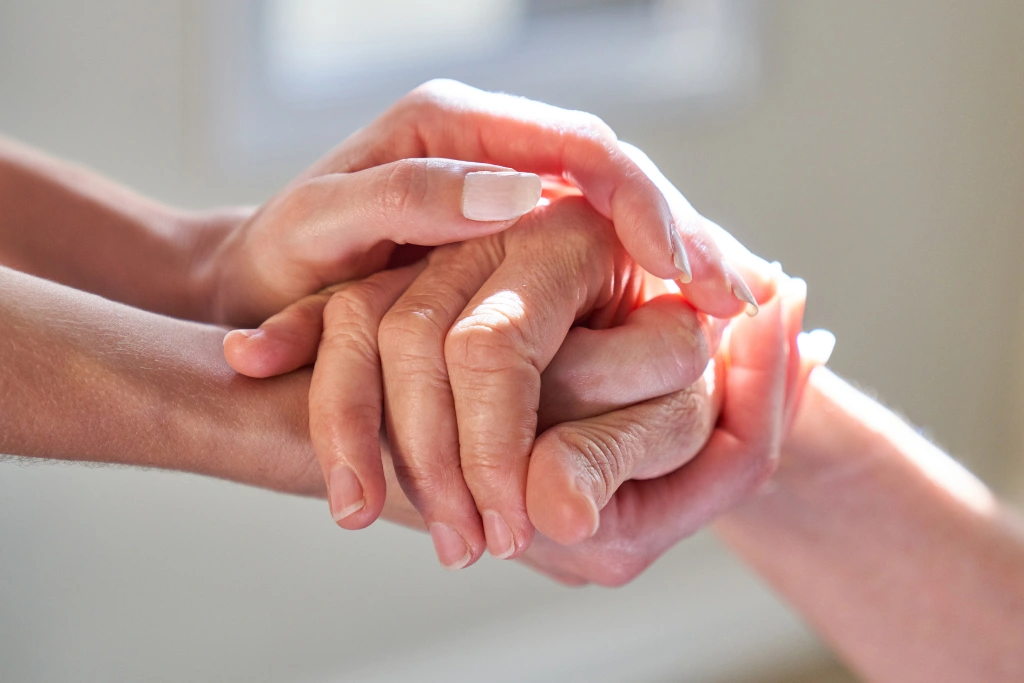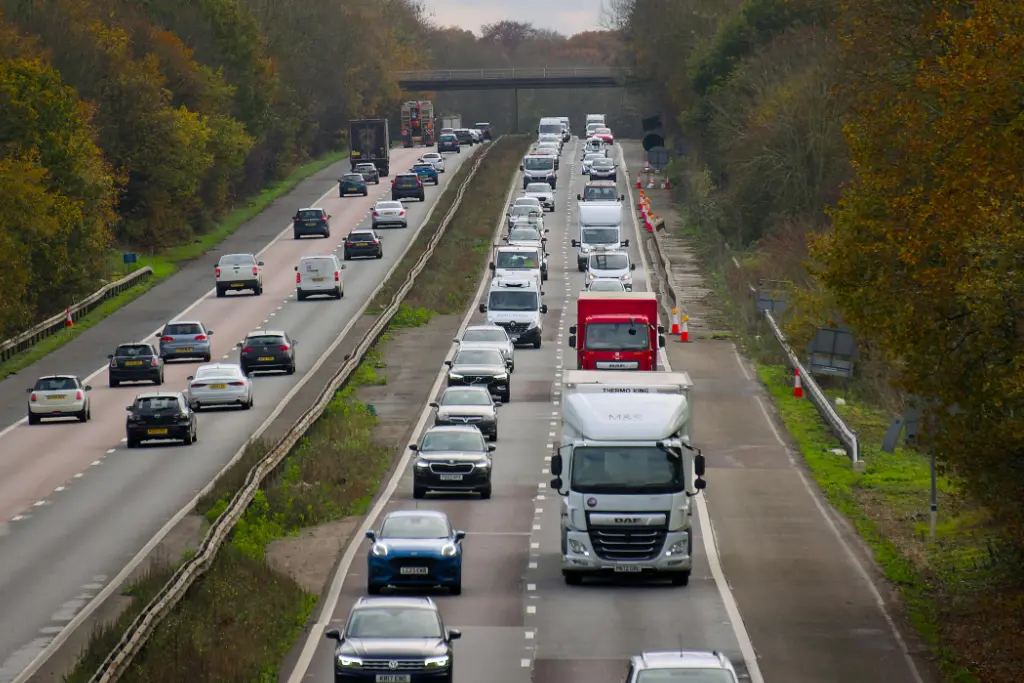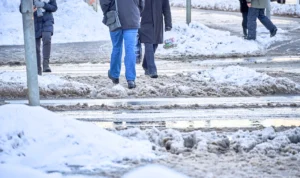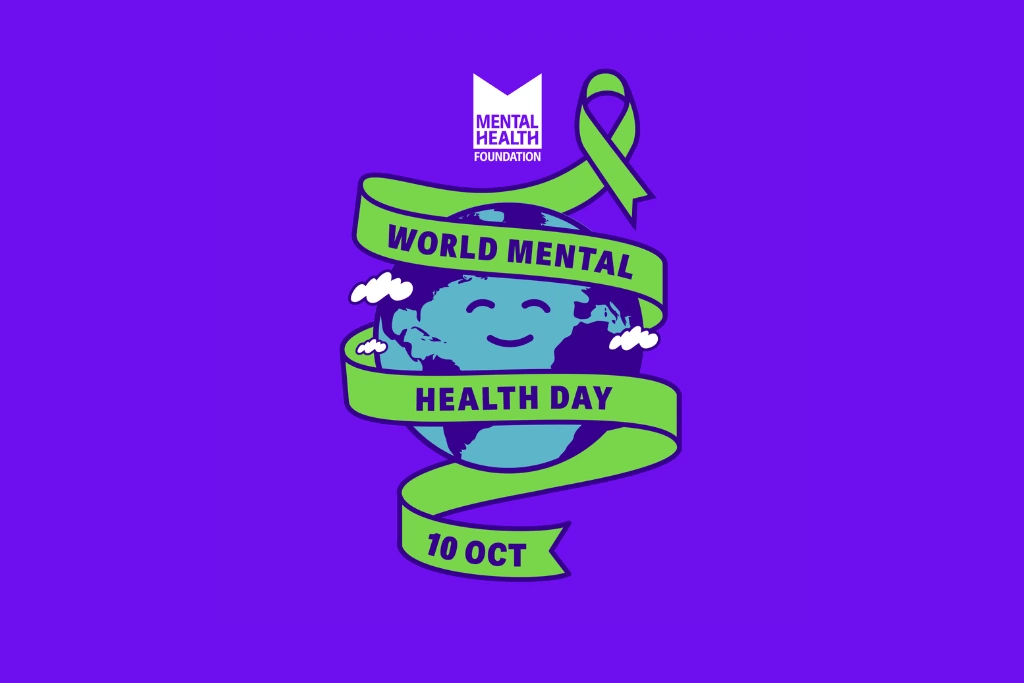Impecuniosity: The Little Known Legal Principle That Could Increase Your Compensation
- Home
- Archive by Category "Blog"
Share this article
After an accident, there’s so much going on.
Your injuries, getting to medical appointments. Having to take time off work.
But what many people in Scotland don’t realise is there’s a little-known legal principle that can have a significant impact on the value of their claim.
It’s called impecuniosity. And in the right circumstances, it can make a massive difference to the outcome of your claim.
What is impecuniosity?
Impecuniosity simply means financial hardship.
In the context of a personal injury claim in Scotland, it refers to your financial situation after an accident. For example, if you were able to absorb certain costs yourself.
Many people fall under the definition of ‘impecunious’ during their personal injury claim. You might too if:
- You don’t have enough savings
- If your income stopped or reduced
- If you had to rely on credit or family support
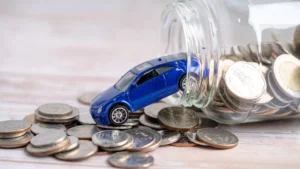
You shouldn’t be penalised for not having savings
People worry that admitting they don’t have enough savings will weaken their case.
In reality, the opposite can be true. The law in Scotland doesn’t expect injured people to have large sums of money set aside to deal with someone else’s negligence.
If an accident has left you struggling financially, that’s not something to be embarrassed about. It might be an important part of your claim.
Why impecuniosity matters more than you might think
Insurers often argue that injured people should’ve chosen the cheapest possible option when dealing with losses in a personal injury claim.
For example, after a road traffic accident, an insurer might say that you should’ve paid for a replacement car rather than going for a credit hire option.
But what happens if you couldn’t afford to?
This is where the law takes your financial situation into account and impecuniosity becomes important.
If you can show that you didn’t have the financial means to pay upfront, the law recognises that your options were limited.
So if you end up hiring a vehicle for a period of time, it’s justified.
This ‘expense’ can be factored in as a loss in your personal injury claim – putting you back to the position you were in financially before the accident.
Common examples in Scotland
We frequently see impecuniosity issues arise in cases involving:
- Road traffic accidents where a vehicle is written off and there are no savings available to replace it
- Workplace accidents where overtime, bonuses or shift allowances stop immediately after the injury
- Self-employed individuals whose income drops overnight
- Serious injuries that result in long periods on statutory sick pay
In each case, the accident does more than leave you dealing with an injury.
It creates a strain financially. The law recognises that reality.
How do you prove impecuniosity?
If an insurer tries to challenge this, it can mean the difference between recovering your full losses and having part of your claim reduced.
So proving you’re impecunious needs to be supported by evidence.
This could be bank statements, wage slips, proof of savings, or other details of regular outgoings at the time of the accident.
We’re not interested in prying into your life.
The goal is to demonstrate your genuine financial position so that insurers can’t unfairly argue that you had cheaper alternatives available.
When it’s handled correctly – this evidence can strengthen your claim considerably.
Why early legal advice is essential
Impecuniosity is rarely explained by insurers. It’s not something they volunteer information about.
If this issue isn’t raised and properly evidenced at the right stage of your claim, you might lose the opportunity to bring it up later on.
An experienced personal injury solicitor will aim to find out if you could be classed as impecunious or not. They can also further advise you on what documentation is needed.
For clients across Scotland, that advice can be invaluable at a time when you need the most help.
Clarity brings confidence
Understanding how impecuniosity works can remove a great deal of uncertainty –
- It explains why certain costs arise after an accident.
- It clarifies why evidence of your financial position matters.
- And most importantly, it reassures you that the law does recognise the financial realities people face.
If you’re pursuing a personal injury claim in Scotland and are concerned about the financial impact of your accident, it’s worth seeking professional advice.
A clear explanation at an early stage can make a meaningful difference to the outcome of your case and to your peace of mind.
If you or a loved one is suffering, don’t hesitate to contact us for support.
Claim smarter.
Access our free how-to guide on making a personal injury claim.
Jargon free and designed for you.
More from Gildeas:
- What Happens Next In Your Personal Injury Claim
- How Much Will I Get? And 9 Other Questions About Compensation
- Maximising Your Compensation: A Step by Step Guide
- FAQs
Gildeas Solicitors is a recognised law firm specialising in personal injury claims, supporting you throughout Scotland from our offices in Glasgow and Edinburgh. We’re passionate about what we do, whilst putting our clients’ interests first. That’s why we make personal injury personal.
Considering our services? Call our dedicated team today on 0141 331 6070.
More to explore
Off Work And Skint: How We Recover Your Loss of Earnings
- Home
- Archive by Category "Blog"
Share this article
We understand how important it is to have clarity when it comes to all the different parts of a claim.
Loss of earnings can be one of the hardest financial impacts after an accident, yet it can seem complicated.
This short guide explains what loss of earnings means, what you can claim for, and how to make sure your losses are properly evidenced.
Can I claim compensation for loss of earnings?
You can claim for loss of earnings if an injury has forced you to take time off work or reduced your potential ability to earn. You can make a claim if:
- The accident wasn’t your fault and occurred in the last three years
- Your injuries were caused by the accident
- You suffered financial losses as a result

What counts as loss of earnings?
A loss of earnings claim is based on net earnings. Loss of earnings in a personal injury claim covers:
- Your take-home pay after tax and NI
- Commission and tips
- Regularly earned overtime pay and bonuses
- Future earnings such as promotions or your pension, e.g., if you were forced to take a lower-paid role due to being significantly impaired after the accident.
- For self-employed people, it can cover lost profits, lost contracts, etc.
How can I prove loss of earnings?
Proving loss of earnings in a personal injury claim requires documented evidence of your income before and after the accident.
Types of evidence we look for:
- At least 3-6 months worth of payslips
- Your contract
- Records of absence such as sick notes, medical records, company sickness records, etc.
- For self-employed people, tax returns, income records, and your profit and loss accounts can be used.
How much can I claim for loss of earnings?
With personal injury, you can claim 100% of provable lost earnings.
The amount is decided based on your take-home pay after tax and NI. For an accurate calculation, especially with future losses or complex self-employment income, it’s best to consult with a personal injury solicitor.
Can you claim for loss of earnings if you get sick pay?
Yes, because a loss of earnings claim allows you to recover wages lost due to absence from work. Your solicitor has a duty to ensure all losses are recovered.
How much can I claim if I received sick pay?
Sick pay is taken off your compensation amount. This is because you would be paid twice for the same period of illness – once from your employer and then again in your claim. How much is taken off depends on the type of sick pay you received and how long you were off work for.
If you are paid Statutory Sick Pay (SSP):
If you only received SSP, this will be taken off your usual wage, and you can claim the difference.
Your solicitor will calculate the total loss of earnings, deduct any sick pay received, and ensure the final settlement accurately reflects your actual financial loss.
If you are paid Contractual Sick Pay (or sick pay from your employer):
Your employer might offer a sick pay scheme that is more generous than SSP.
Some people have a clause in their contract which says that contractual sick pay must be paid back to your employer if you win a compensation claim.
You will need to check your contract or ask your employer for more details.
If your contract has this clause, then the amount should be added to your claim.
For these reasons, it’s important that you contact a specialist personal injury solicitor. If this clause is missed, you could be out of pocket and owe your employer the full amount of the contractual sick pay you received whilst off.
How to claim loss of earnings when you’re self-employed?
You can still make a loss of earnings claim if you’re self-employed. You just need to prove your losses in a different way. Evidence we look for:
- HMRC tax returns, profit and loss accounts, business bank statements from 3 years before the accident to show income trends
- Records of lost work, e.g., cancelled appointments or contracts, invoices, diaries, emails – documentation that proves you lost income due to being injured
- For new businesses, bank statements, contracts and business plans can be used.
- Medical evidence is essential to prove you couldn’t work due to injury.
We highly recommend you contact a specialist personal injury solicitor if you are self-employed.
What steps to take when off sick due to an accident?
If you’re injured due to an accident, you can help prepare for your claim by:
- Telling your employer: Tell your employer immediately about the accident and your incapacity to work.
- Getting a sick note: Get a doctor’s note to prove you’re off sick.
- Gathering evidence: Gather your contract and at least 3 months of pay slips before your accident.
- Seeking advice: Contact a personal injury solicitor to make sure all losses are properly calculated.
Conclusion
Loss of earnings claims can feel complex, particularly when sick pay, self-employment or future income are involved.
We know it can seem like a lot, but with proper evidence and guidance from a solicitor, you can ensure that all aspects of your recovery will be properly accounted for – and you’re not left out of pocket because of an accident that wasn’t your fault.
If you or a loved one is suffering, don’t hesitate to contact us for support.
Claim smarter.
Access our free how-to guide on making a personal injury claim.
Jargon free and designed for you.
More from Gildeas:
- What Happens Next In Your Personal Injury Claim
- How Much Will I Get? And 9 Other Questions About Compensation
- Maximising Your Compensation: A Step by Step Guide
- FAQs
Gildeas Solicitors is a recognised law firm specialising in personal injury claims, supporting you throughout Scotland from our offices in Glasgow and Edinburgh. We’re passionate about what we do, whilst putting our clients’ interests first. That’s why we make personal injury personal.
Considering our services? Call our dedicated team today on 0141 331 6070.
More to explore
Why We're Boycotting Blue Monday
- Home
- Archive by Category "Blog"
Share this article
‘Blue Monday’ was first coined by UK holiday company Sky Travel and refers to the third Monday in January – supposedly the most depressing day of the year.
It’s often discussed as a light-hearted way to explain the January blues.
But in personal injury cases, psychological harm is serious, lasting, and deserving of far more care than a catchy label.
Read on as we discuss why Blue Monday doesn’t tell the full story of mental health.
The truth about Blue Monday
We can all relate to the January slump. Christmas is finished, pay day is ages away, and the weather is horrendous. It’s understandable that we might look for ways to cheer ourselves up.
But many companies use Blue Monday as an incentive to get us to spend money. Travel and event marketing seems to be ramped up.
At Gildeas, we support people dealing with the long-term impact of injury, trauma and loss. That’s why we’re cautious about a campaign that risks trivialising mental health for the sake of marketing.
The so-called most depressing day of the year was invented by Sky Travel in 2006 – but there is no scientific evidence or truth to support the idea that we’re all more likely to feel low on this particular day of the year.
Why we believe personal injury solicitors should boycott Blue Monday
Mental health challenges can be complex, and Blue Monday risks trivialising people’s very real emotions to sell stuff. Life – especially after an accident – can be hard enough without negative mental health stereotypes like this.
Accidents, whether road traffic accidents, workplace injuries, or slips and falls, can leave lasting scars – both physically and mentally.
Many of our clients seek support from Gildeas having experienced a traumatic accident or life event, and some may go on to receive a specific diagnosis.
Below are just some of the conditions often seen in personal injury cases.
- Anxiety and depression
- Trauma-related psychological injuries and PTSD (Post-traumatic stress disorder)
- Adjustment disorders
- Somatic symptom disorders
Mental health doesn’t follow a calendar
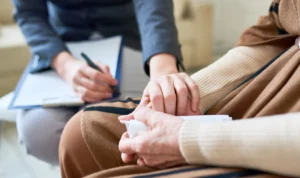
When it comes to your mental health after an accident, the reality is – we all have our good days and bad days, and we can’t control whether a bad day might occur in January, February, or any other day.
While it’s true January can be a difficult month for us all, we see the lasting impact accidents have on people every day. Mental health challenges don’t appear on a single day like Blue Monday, and they don’t disappear when January ends.
Thankfully, there’s a wealth of support available to help you navigate the psychological challenges following an accident – whether it be through the NHS, charities, or private services.
This Blue Monday – and on any day – we encourage anyone impacted by injury to reflect on their wellbeing, reach out for support, and know that you don’t have to face the process alone.
Your story matters, and we’re here to listen.
If you or a loved one is suffering, don’t hesitate to contact us for support.
Useful links for mental health support:
How to access specialised NHS mental health services in Scotland
Charities:
Scottish Action for Mental Health (SAMH)
Claim smarter.
Get your FREE guide to personal injury claims!
More from Gildeas:
What Happens Next In Your Personal Injury Claim
Gildeas Solicitors is a recognised law firm specialising in personal injury claims, supporting you throughout Scotland from our offices in Glasgow and Edinburgh. We’re passionate about what we do, whilst putting our clients’ interests first. That’s why we make personal injury personal.
Considering our services? Call our dedicated team today on 0141 331 6070.
More to explore
News: What Labour's bold new road safety strategy means for you
- Home
- Archive by Category "Blog"
Share this article
Westminster has announced it’s first road safety strategy in over 10 years, targeting an ambitious 65% reduction in deaths and serious injuries on UK roads by 2035.
From mandatory eye tests for over 70s to a minimum learning period for new drivers, the changes are expected to be the most significant to road safety laws since 2006.
We take a closer look at the changes to motoring laws introduced within the strategy – and how it will affect Scottish drivers.
New laws as part of the Road Safety Strategy:
1. Mandatory eye tests for over 70s
This is one of the biggest changes Labour is looking to introduce, and one that campaign groups have pressed for in recent years.
If implemented after a consultation period, the change would see all motorists aged 70 needing to obtain a current eye examination and include it with their application to renew their licence every three years.
What do you need to do if this change affects you?
How the testing and renewal system will work exactly has yet to be announced but drivers over 70 will have to show they’ve passed the tests required to renew their licence.
2. Minimum period of learning for new drivers
The Government will look to introduce a three or six-month minimum period of learning for first time drivers.
The DfT says that ‘inexperience behind the wheel is costing lives’ as drivers aged 17-24 represent just six per cent of licence holders but are involved in 24 per cent of fatal and serious collisions.
What do you need to do if this change affects you?
If this change goes through drivers will need to show they have completed the set amount of learning. We don’t yet know how this will be checked, but it may be that driving instructors will be required to show how long students have been learning for.
3. Crackdown on illegal number plates
The growing number of illegal number plates will be targeted with new measures, with particular focus on eliminating ‘ghost’ plates designed to fool camera systems.
Ghost plates use a reflective coating that prevents them from being read by recognition cameras.
The Government has been warned that as many as one in 15 vehicles may carry plates designed to evade detection.
How will the new road safety strategy be introduced?
The government will look to publish a number of consultations aimed at affected groups, including drivers older than 70, new drivers, motorbike users, and a consultation on vehicle tech.
Spokespeople from the AA have stated this will predominately look at the EU GSR2 (General Safety Regulation 2) – a European law mandating advanced driver-assistance systems (ADAS) in new vehicles to reduce road deaths.
Further measures include bringing the drink-driving limit in England and Wales into line with Scotland’s, as well as tougher penalties for uninsured drivers and those without a valid MOT.
On the new strategy, Secretary of State for Transport Heidi Alexander, said:
‘Every life lost on our roads is a tragedy that devastates families and communities.
‘For too long, progress on road safety has stalled.
‘This strategy marks a turning point.
‘We are taking decisive action to make our roads safer for everyone, from new drivers taking their first lessons to older motorists wanting to maintain their independence.
‘The measures we are announcing today will save thousands of lives over the coming decade.’
Looking Ahead
If fully implemented, this new strategy could mark a meaningful step forward in reducing avoidable harm on UK roads. A stronger focus on older drivers eyesight, experience and enforcement reflects a growing understanding that safer roads rely on responsible driving as much as policy.
For Scottish motorists, some measures will feel familiar, while others may bring important changes. As consultations develop, clear guidance will be essential to ensure these reforms are effective.
We know that behind every statistic is a person and a family. Preventing injuries must remain the priority, but when accidents do happen, informed legal advice can make a real difference.
If you’ve been affected by a road traffic accident or have questions about your rights, we can help. Contact Gildeas Solicitors for a no-obligation chat today.
Claim smarter.
Get your FREE guide to personal injury claims!
Check out our related links:
Why You Shouldn’t Drive Without A Dash Cam
Bike Filtering: Legal, Risky, Or Just Misunderstood?
Gildeas Solicitors is a recognised law firm specialising in personal injury claims, supporting you throughout Scotland from our offices in Glasgow and Edinburgh. We’re passionate about what we do, whilst putting our clients’ interests first. That’s why we make personal injury personal.
Considering our services? Call our dedicated team today on 0141 331 6070.
More to explore
Why These 3 New Year’s Resolutions Could Save You Time, Money, and Stress
- Home
- Archive by Category "Blog"
Share this article
New Year’s Resolutions often focus on health or fitness goals, but there are also practical steps you can take to protect yourself if the unexpected happens.
At Gildeas Solicitors, our personal injury team see first hand how small changes at the start of the year can make a big difference later.
We offer three simple New Year’s resolutions that can protect you if you’re the victim of an accident in 2026.
Take Care of Yourself
It’s the most common New Year’s resolution – we could all do more to improve our health. But it’s important for another reason that unfortunately we see all the time as personal injury solicitors. In general, our clients who experience the best and quickest physical recoveries tend to be the ones who were fit and active before their accidents.
Being active can also be an important factor when assessing the full value of a personal injury claim. The law allows you to claim for disruptions to your lifestyle due to the impact of your injuries. It doesn’t mean you have to be a marathon runner – but it could be as simple as being unable to take your daily walk with your dog, playing sports with your kids or grandkids, or unwinding at the gym.
Change the Way You Think About Personal Injury Claims
Many people assume that making a personal injury claim is only appropriate after a very serious or dramatic accident. It’s a common misconception that the seriousness of an injury is only judged by the amount of visible damage.
The reality is that people can be seriously injured from even minor accidents with little or no real damage. We see major soft tissue and muscle injuries caused by vehicles travelling at low speeds – and accident victims can feel the effects of those injuries for months, or even years later.
The law exists to compensate victims. If you’ve been injured in a way that caused any change to your daily living or your ability to work – even if you were able to drive your car away – you should at least consult with a solicitor to assess if you have a potential claim.
Don’t Put Off Getting Legal Advice

Many people wait far too long before speaking to a solicitor after an accident, often because they believe their injuries will resolve or they’re unsure whether they even have a claim.
Unfortunately, delay can work against you. Early legal advice helps to protect important evidence, identify witnesses while events are still fresh, and ensure that your medical treatment and records accurately reflect the full extent of your injuries.
Speaking to a solicitor doesn’t mean you’re committing to making a claim – it simply allows you to understand your rights, your options, and the steps you should (and should not) take following an accident.
Getting clear advice early can make a significant difference later on.
Contact Gildeas Solicitors for a no-obligation chat today.
Claim smarter.
Get your FREE guide to personal injury claims!
Check out our related links:
2025: A Year of Growth and Gratitude
What Happens Next In Your Personal Injury Claim
Gildeas Solicitors is a recognised law firm specialising in personal injury claims, supporting you throughout Scotland from our offices in Glasgow and Edinburgh. We’re passionate about what we do, whilst putting our clients’ interests first. That’s why we make personal injury personal.
Considering our services? Call our dedicated team today on 0141 331 6070.
More to explore
News: A Year of Growth and Gratitude at Gildeas Solicitors
- Home
- Archive by Category "Blog"
Share this article
As we move through the last month of 2025, we are reflecting on a remarkable and transformative year for our firm.
It’s been a year defined by progress, achievement and a deepening commitment to the people and communities we serve.
Strengthening our Legal Team
In 2025, we continued to invest in the strength and future of our team. In February, Fergus Thomson, Solicitor Advocate, was appointed as Director. This was a proud moment for the firm and a testament to Fergus’s expertise, leadership and dedication to clients.
In March, we celebrated a raft of well-earned promotions across the business. Several colleagues were promoted to Senior Paralegal, including Deonne Stirling, Nicola Bremner, Seonaidh Currie and Kirsty Hinds. Their talent, hard work and commitment to client care are key to the service we deliver every day.
We were also delighted to recognise a number of colleagues who reached an exceptional milestone this year. Several members of staff celebrated their ten-year anniversaries with Gildeas. Their loyalty and long-standing contribution have helped shape the firm we are today.
Fighting for the Injured Across Scotland
Throughout 2025, our solicitors secured millions in settlements for people injured through no fault of their own.
But our work is about far more than recovering financial compensation. We focus on helping clients rebuild their lives by arranging the right medical treatment, rehabilitation support and expert assistance from the earliest possible stage. Whether this involves physiotherapy, psychological care, specialist assessments or ongoing therapeutic input – our aim is always to help each client return to the position they were in before their accident, as fully and quickly as possible.
Every case represents a family facing uncertainty, a person in pain, or a life upended – and it remains our privilege to guide our clients through their most difficult moments.
Giving Back to the Community Who Supports Us
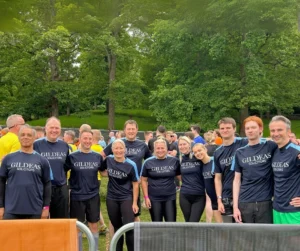
Our commitment to community work remained strong this year.
In June, a team from Gildeas took part in the Tough Mudder challenge to raise funds for Cardiac Risk in the Young, a charity carrying out vital work to reduce the number of young people who lose their lives to sudden cardiac conditions.
This cause was especially close to our hearts. Our fundraising was dedicated to the memory of Ashwin Bali, a young doctor who tragically passed away in 2024 from sudden cardiac arrest.
The team raised more than £6700 in his honour, and we are immensely grateful to everyone who supported us.
Looking Ahead
As we prepare for 2026, we do so with gratitude for the trust our clients have placed in us, pride in our team’s remarkable achievements, and excitement for the future at Gildeas.
We might have evolved, but our mission – protecting the injured, fighting for justice and supporting our community – remains the same.
Thank you for being part of our journey.
From all of us at Gildeas Solicitors, we wish you a Merry Christmas and a safe, healthy and optimistic New Year.
Contact Gildeas Solicitors for a no-obligation chat today.
Claim smarter.
Get your FREE guide to personal injury claims!
Check out our related links:
Meet the Team at Gildeas Solicitors
Gildeas Solicitors is a recognised law firm specialising in personal injury claims, supporting you throughout Scotland from our offices in Glasgow and Edinburgh. We’re passionate about what we do, whilst putting our clients’ interests first. That’s why we make personal injury personal.
Considering our services? Call our dedicated team today on 0141 331 6070.
More to explore
Can I Make A Claim For A Fall On Ice In A Public Place?
- Home
- Archive by Category "Blog"
Share this article
At this time of year, slips, trips and falls are common. Frost and icy weather can make everyday places dangerous – especially if the owner or occupier hasn’t taken enough care to protect the public’s safety.
If you’ve suffered an injury in a public place because of snow or ice, you could be entitled to claim. Read on as we look at these types of accidents and answer some of the important questions you may have.
Accidents in a public place caused by ice or snow
If you’ve suffered an injury due to ice or snow in a public place, you may be able to bring a claim against whomever is responsible. But how do you determine who that is?
When making a claim for an accident in a public space, you claim against ‘the occupier’. This is whoever responsible for maintaining the public area. For example:
- The local authority responsible for pavements, car parks, libraries, or leisure centres
- A shop or restaurant chain operating the site
- A landlord, housing association, or managing agent in communal areas
- A school, hospital, event organiser or venue operator
- A contractor in control of a building site or area
If you are unsure, your solicitor can help you determine who is responsible.
What types of places are included?
When we discuss accidents in a public place, we usually refer to the following:
- Shopping centres and retail parks
- Airports, bus or train stations
- Public car parks or multi-storey car parks
- Supermarkets or supermarket car parks
- Hospital grounds
- Public paths and walkways
Do I have a claim if I fall on ice?
For a claim to be credible, you need to have suffered an injury within the last three years that was at least partially the fault of the responsible party.
Under the Occupiers’ Liability Act 1957, occupiers have a ‘common duty of care’ towards visitors to the premises. This means they’re legally obligated to keep visitors ‘reasonably safe in using the premises’ – and this includes during bad weather.
If an occupier fails and doesn’t properly address hazards caused by snow and ice, this is where you could have a claim. If the occupier knew (or should have known) about the hazard and failed to act reasonably, they might be liable.
Interpreting this law is sometimes tricky. The law states that occupiers must only take ‘reasonable’ steps to protect visitors.
For example, in the case of supermarkets, staff members can be expected to make sure that snow or ice doesn’t pose a hazard to visitors in entranceways or trolley areas. We can expect them to use proper signage and warn visitors of any potential hazards.
However, it could be seen as ‘unreasonable’ and even impossible for occupiers to ensure the entire car park and surrounding areas are free of ice and snow.
When you contact a solicitor, they’ll ask questions about your accident to advise you fully as to whether you have a good claim.
What to do after an accident on someone else’s premises
If it’s judged that you failed to mitigate your losses, this will be considered in any settlement offer.
- Seek medical attention quickly and follow clinical advice.
- Act quickly and gather evidence. These simple steps can give credibility to your case.
- Report the accident to staff and ask for it to be recorded in their accident book.
- Photograph the area, including signage and weather conditions.
- Request CCTV in writing as soon as possible.
- Take witness details – names, phone numbers and addresses.
- Keep receipts for travel, repairs, and expenses.
- Keep notes of your injury symptoms.
Final Thoughts
If you’ve been injured in a public place due to snow or ice, you might be entitled to claim.
By seeking prompt medical attention, gathering evidence and obtaining expert legal advice, you can better understand your rights and the strength of your case.
Contact Gildeas Solicitors for a no-obligation chat today.
Still have questions?
Claim smarter.
Get your FREE guide to personal injury claims!
Check out our related links:
Can I make a claim if I’m injured at the Christmas party?
Gildeas Solicitors is a recognised law firm specialising in personal injury claims, supporting you throughout Scotland from our offices in Glasgow and Edinburgh. We’re passionate about what we do, whilst putting our clients’ interests first. That’s why we make personal injury personal.
Considering our services? Call our dedicated team today on 0141 331 6070.
More to explore
Mitigation: Could You Lose Out On Compensation Without Realising It?
- Home
- Archive by Category "Blog"
Share this article
If you’ve been injured in an accident, the last thing you want is to lose out on compensation because of a technicality.
But that’s exactly what can happen if you don’t take ‘reasonable steps’ to reduce your losses – something the law calls mitigation.
In this article, we’ll explain what mitigation means, why it matters to your personal injury claim, and how Gildeas Solicitors can help make sure you get the compensation you deserve.
What Is Mitigation In A Personal Injury Claim?
Mitigation means taking steps to reduce the severity of your losses after an accident as far as reasonably possible. This includes your finances and expenses, as well as how serious your injuries are.
The main aim of personal injury law is always to put the claimant back into the position they would have been in if they were never injured.
Whilst the Damages (Scotland) Act 2011 provides a way to recover financially after suffering an injury, it comes with the condition that claimants should take steps to reduce their losses as much as possible.
If you don’t do this, the Court could refuse to offer compensation for the financial losses that could have been avoided – potentially reducing your overall settlement
What Does This Mean In Practice?
Our job as your solicitors is to help you get the maximum compensation you deserve following an accident. We do this by collecting evidence such as medical records, receipts, payslips, and more to support the expenses that you’ve incurred.
The law states that you have a duty to keep those expenses to a ‘reasonable’ level. This can be tricky as each case is different – what might be reasonable in one claim won’t be reasonable in another. This is why the law asks you to act ‘reasonably’.
Basically – have you used common sense in your decision making during the aftermath of the accident and throughout the claim process.
Where Does Mitigation Come Into Play?
Seeking medical attention and treatment
The law states that you should try to reduce your injuries as much as you can. This means, as much as possible you should try to:
- Seek medical attention as soon as possible after the accident. For example attending your GP, calling NHS 24, or calling an ambulance.
- Recover as quickly as you can. You should try to engage with all treatment options available, e.g., medication, physiotherapy, CBT, or other medical treatments.
Returning to work
Losing your earnings due to being off work can make up a significant portion of your claim. The law requires that you try to reduce these losses where possible, for example:
- Taking on different or lighter duties, e.g., in a less physically demanding role
- Working from home
- Reducing hours, e.g., working part time
You should return to work as soon you’re medically fit and able to do so – a doctor or medical expert should advise on this. If a doctor renders you able to return to work but you don’t and you continue to lose earnings, you might not be able to recover these in your claim. In serious accidents, you might need significant time off work or you might not be able to return to work at all. Under these circumstances, the law requires that you look for alternative employment where appropriate.

A real life example
In a recent Gildeas case, our client Mr C was a full-time carer for a man with long-term complex additional support needs.
In the job for over 10 years, it was physically and mentally demanding. After the accident, Mr C was unable to return to this role due to serious injuries to his shoulder, coupled with a serious mental health condition following the accident. He was ultimately diagnosed with depression.
Alongside his care job, Mr C had previously taken on work as a motorbike instructor before the accident. An independent employment expert was consulted in the claim who concluded that Mr C would be better off financially in a customer service role, but Mr C wanted to return to his bike instructor work.
Gildeas argued that retraining and looking for new work wouldn’t be appropriate given Mr C’s mental health diagnosis. The judge decided this was a reasonable choice and the claim was awarded in his favour.
Travel and vehicle use
If you can’t drive following your accident, you should try to mitigate your losses in this way too. For example:
- Driving with breaks in the journey or delaying a journey until roads are quieter, etc.
- Opting to use public transport instead of taxis where you can.
- If your vehicle was damaged, having it repaired as soon as possible.
- Using another vehicle available to you instead of hiring a car – e.g., if your partner or family member has a vehicle you can drive.
- Where possible, opting to get items repaired instead of replaced, such as bike helmets, gear, car seats, damaged mobile phones, etc.
How We Can Help
Our job as your solicitors, or as the ‘Pursuer’ in the claim process is to negotiate with the other side to agree on a settlement, so we’re required to obtain as much evidence as possible to support every loss you incurred.
Naturally we don’t want you to be judged as having acted unreasonably.
The job of the other side, or ‘Defender’ is to establish if and where you did mitigate your losses.
How we can support you to mitigate your losses:
- Discuss available medical treatment options, such as physio or CBT.
- Consult to obtain independent evidence from experts, e.g., medical experts, vehicle assessors, or employment experts
- Recommend trusted repairers or vehicle hire
What Happens If I Don’t Mitigate My Losses?
If it’s judged that you failed to mitigate your losses, this will be considered in any settlement offer.
This means you could be offered a lower amount than what you might have originally been able to claim.
Final Thoughts
It’s important for any claimant to take reasonable steps to avoid unnecessary costs and to reduce the impact of their injuries.
However, it’s for the other side to establish if you failed to do this.
The key question asked will be whether you acted reasonably or not in the aftermath of the accident.
The process might seem complex, but with proper evidence and guidance from a solicitor, you can ensure that all aspects of your recovery will be properly accounted for.
Still have questions?
You might be interested in our other claim guides:
What Happens Next In Your Personal Injury Claim
How Long Do I Have To Make A Claim?
How Much Will I Get? And 9 Other Questions About Personal Injury Compensation
Gildeas Solicitors is a recognised law firm specialising in personal injury claims, supporting you throughout Scotland from our offices in Glasgow and Edinburgh. We’re passionate about what we do, whilst putting our clients’ interests first. That’s why we make personal injury personal.
Considering our services? Call our dedicated team today on 0141 331 6070.
More to explore
Why October is the Most Dangerous Month for Kids on the Road
- Home
- Archive by Category "Blog"
Share this article
October in Scotland brings more than just falling leaves and colder days. With the clocks going back this Sunday and recent foggy, rain-soaked mornings still fresh in our minds, many parents are already noticing the impact of poor visibility on daily routines.
For those driving children to school or evening activities like football, swimming, or dance class, the seasonal shift isn’t just inconvenient – it can be dangerous. Reduced daylight hours, slippery roads, and misty conditions increase the risk of accidents, particularly involving pedestrians. And children, by nature, can be unpredictable around traffic.
At Gildeas Solicitors, we want to help families stay informed about road safety during this time of year – and highlight what your rights are if the worst happens and a child is injured on the roads.
Why Visibility is a Real Concern in October
By mid-October, sunrise in Glasgow and Edinburgh isn’t until nearly 8am. That means the school run often begins in the dark or low light. Add fog or heavy rain, and visibility can be severely reduced for even the most careful driver.
Many children, especially those in primary school, may not fully understand how difficult it is for drivers to see them. They might step into the road without checking or run across between parked cars. Older children walking to school or clubs on their own may also wear darker clothing or carry bags that obscure their visibility from behind.
That’s why brighter clothing, reflective accessories and extra care at crossings matter more than ever right now.
Tips for Parents Driving in Low-Light Conditions
Parents often find themselves juggling drop-offs before work, managing packed schedules, and navigating unfamiliar streets for weekend sports clubs or events. However, there are a few quick, practical ways to reduce risks on the road:
- Slow down in residential areas and near schools – even small reductions in speed can make a big difference in reaction time.
- Use dipped headlights in fog or rain and always ensure all your lights are clean and working.
- Be extra cautious around crossings and school entrances, especially where parked cars may limit your view of small children.
- Avoid distractions – whether it’s changing music or checking a message at a red light, every second counts in poor conditions.
- Allow extra travel time to avoid rushing, which often leads to errors in judgement.
Encouraging Children to Stay Visible
Even if you’re driving, your child is likely walking some of the way – whether that’s through the school car park or across a busy street to reach the football fields.
It’s worth having a quick conversation with them about staying visible and alert, especially during early mornings and evening pickups.
Some tips to share with them include:
- Wearing high-vis or reflective items, like jackets or a bag cover
- Crossing at designated areas, even if it takes slightly longer
- Making eye contact with drivers before stepping into the road
- Avoiding distractions like phones or headphones near traffic
Many schools and clubs already promote these ideas but reinforcing them at home can make a difference. For more practical advice on helping children stay safe near roads, Road Safety Scotland has a helpful resource for parents here.
What Happens if a Child is Injured in a Road Accident?
Despite best efforts, accidents can still happen. If your child is involved in a road traffic incident – whether as a pedestrian, cyclist or passenger – it’s important to understand your legal rights.
Under Scots law, children can’t bring legal claims themselves until they turn 16. Until then, a parent or legal guardian can raise a personal injury claim on their behalf. These types of claims might cover injuries from being hit by a vehicle, accidents during travel to school, or incidents caused by another driver’s negligence.
If no claim is made during the child’s youth, the three-year time limit for starting a claim begins once they turn 16. That gives them until age 19 to pursue compensation on their own behalf, if they wish.
It’s important to gather as much information as possible soon after an incident – including witness details, photos of the scene, and medical reports. Even if injuries appear minor at first, it’s important a medical professional rules out anything to prevent complications further down the line.
Who is at Fault in Child Injury Cases?
One common misconception is that children are always at fault if they “run out” into the road.
However, Scots law recognises that children don’t have the same level of judgement as adults.
Courts and insurers generally consider age, behaviour, and surrounding circumstances when determining liability.
In many cases, drivers are still expected to take extra care around children – especially near schools, parks, or known walking routes. Failing to adjust speed or attention in these areas can result in the driver being found liable.
Final Thoughts
This October, as we adjust to darker mornings and unpredictable weather, it’s worth taking a few extra moments to ensure children are safe and visible on the roads.
Whether you’re behind the wheel or helping your child get ready for the school run, small precautions now can make a big difference in preventing serious incidents.
By staying alert, encouraging road safety habits, and knowing your rights if something does go wrong, parents can help protect their children during one of the riskiest times of year for young pedestrians.
Still have questions?
Check out these useful links:
How to Claim on Behalf of Someone Else
Children and Contributory Negligence
How Long Do I Have To Make A Claim? A Simple Guide
How Much Will I Get? And 9 Other Questions About Personal Injury Compensation
Gildeas Solicitors is a recognised law firm specialising in personal injury claims, supporting you throughout Scotland from our offices in Glasgow and Edinburgh. We’re passionate about what we do, whilst putting our clients’ interests first. That’s why we make personal injury personal.
Considering our services? Call our dedicated team today on 0141 331 6070.
More to explore
World Mental Health Day 2025
- Home
- Archive by Category "Blog"
Share this article
World Mental Health Day is highlighted every year on 10th October, serving as an opportunity to reflect on our mental health, and consider what we can all do to to improve mental health outcomes for everyone.
This year’s theme, set by the World Health Organisation is access to services – mental health in catastrophes and emergencies.
The theme highlights the importance of people being able to protect their mental health whatever they’re going through, because everyone deserves good mental health.
World Mental Health Day 2025: The Statistics
- 1 in 4 people will experience a mental health issue at some point each year (Mind)
- A 2022 report found that 92% of people in Scotland faced stigma from family or friends due to poor mental health, with 77% reporting being treated unfairly at work (SAMH)
- One in ten adults in Scotland reported feeling lonely ‘most’ or ‘all of the time’, with younger adults the most likely to report this (Scottish Government)
- In 2023, almost 20,000 students in Scotland were receiving counselling from their college or university (SAMH)
Mental health after an accident
Accidents, whether road traffic accidents, workplace injuries, or slips and falls, can leave lasting scars – both physically and mentally. Many of our clients seek support from Gildeas having experienced a traumatic accident or life event, and some may go on to receive a specific diagnosis. Below are just some of the conditions often seen in personal injury cases.
- Anxiety and depression
- Trauma-related psychological injuries and PTSD (Post-traumatic stress disorder)
- Adjustment disorders
- Somatic symptom disorders
How Gildeas Solicitors can support you this World Mental Health Day
We believe that legal representation should be tailored to your needs, which is all the more important in clients who may be impacted by their mental health. Whilst we understand that talking about your mental health or parts of your claim could be traumatic, it’s important to be upfront about your symptoms so we can support you effectively as your legal advisor.
We have a number of practices designed to support claimants with compassion and clarity.
The right person for your case:
With certified trauma-informed solicitors in our legal team, we understand how to approach sensitive conversations with care, and create a safe, respectful environment for each and every client.
We ask the right questions:
We aim to collect the information we need to pursue your case whilst ensuring your wellbeing is at the heart of what we do. For example, we explain clearly at the onset that a meeting, medical examination, or court appearance could be a difficult experience. We aim to explain how long it might last and offer, where possible within our control, the option to pause or arrange a further time to discuss.
We refer you to the right experts:
We work closely with medical professionals and mental health specialists to ensure your needs are recognised in your claim. We’ll always aim to signpost you to the correct tools or support organisations to help you look after yourself, which may include medication, cognitive behavioural therapy (CBT), further counselling, or a combination of these to help support your recovery.
We offer the right strategies:
Managing claims can be even more challenging for those with mental health symptoms, and no one’s experience of trauma is ever the same. We offer greater flexibility and control to help reduce stress during the process. For example, offering clients a choice on the location, format, or timing of meetings, or alternative arrangements for obtaining evidence.
What other mental health support is available?
Many people still feel a stigma around mental health which can discourage them from discussing it. We understand that it might be the first time you’ve opened up, and you might be embarrassed to do so. Recognising that mental health is just as important as physical recovery can help you take the first step toward healing.
Thankfully, there are many different methods for support available – not just crisis helplines, but everything from peer support to tailored solutions and talking therapies.
Below are just a few examples of specialist organisations who can be the starting point for guidance and support if you need help for your mental health.
NHS Services: Your GP
You’ll need to talk to your GP to use some mental health services. They can also talk to you about your mental health and help introduce you to the right mental health service for your needs.
Visit this link for how to access more specialised NHS mental health services.
Charities and Support Groups:
Scottish Action for Mental Health (SAMH)
Legal Support:
Mental health is an integral part of the recovery process for personal injury victims, and it’s crucial to address these issues alongside physical rehabilitation. Whether through the NHS, charities, or private services, there is a wealth of support available to help you navigate the psychological challenges following an accident.
We’re committed to supporting our clients with empathy, understanding, and practical solutions that recognise the full scope of their recovery. Whether it’s adapting how we work, offering access to expert mental health support, or simply making space for honest conversations, our goal is to make the legal process more manageable.
This World Mental Health Day, we encourage anyone impacted by injury to reflect on their wellbeing, reach out for support, and know that you don’t have to face the process alone. Your story matters, and we’re here to listen.
If you or a loved one is suffering, don’t hesitate to contact us for support.
If you need help with a personal injury claim or advice on compensation, contact Gildeas Solicitors today for a free consultation.
Gildeas Solicitors is a recognised law firm specialising in personal injury claims, supporting you throughout Scotland from our offices in Glasgow and Edinburgh. We’re passionate about what we do, whilst putting our clients’ interests first. That’s why we make personal injury personal.
Considering our services? Call our dedicated team today on 0141 331 6070.



